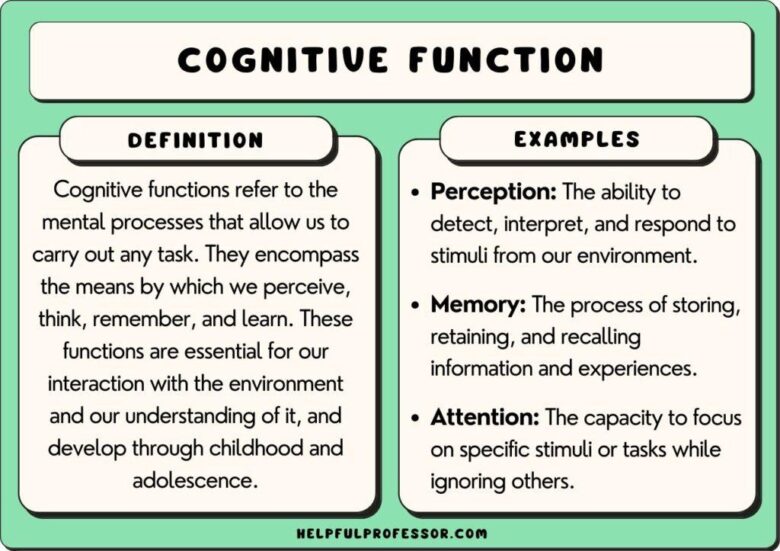In the realm of health and wellness, few topics elicit as much intrigue and debate as hormone therapy. Among the myriad of hormones that play a pivotal role in our bodily functions, testosterone stands out—not just for its well-known influences on physical strength and libido, but for its potential impact on cognitive function. As the quest for enhanced mental clarity and resilience continues to capture public interest, researchers are increasingly turning their attention to how testosterone therapy could influence our cognitive abilities. This article delves into the fascinating intersection of hormones and the brain, exploring the emerging evidence, potential benefits, and risks surrounding testosterone therapy as a means to bolster cognitive performance. Join us on this journey through the complexities of human biology, where age-old questions about masculinity and vitality meet the modern pursuit of mental acuity.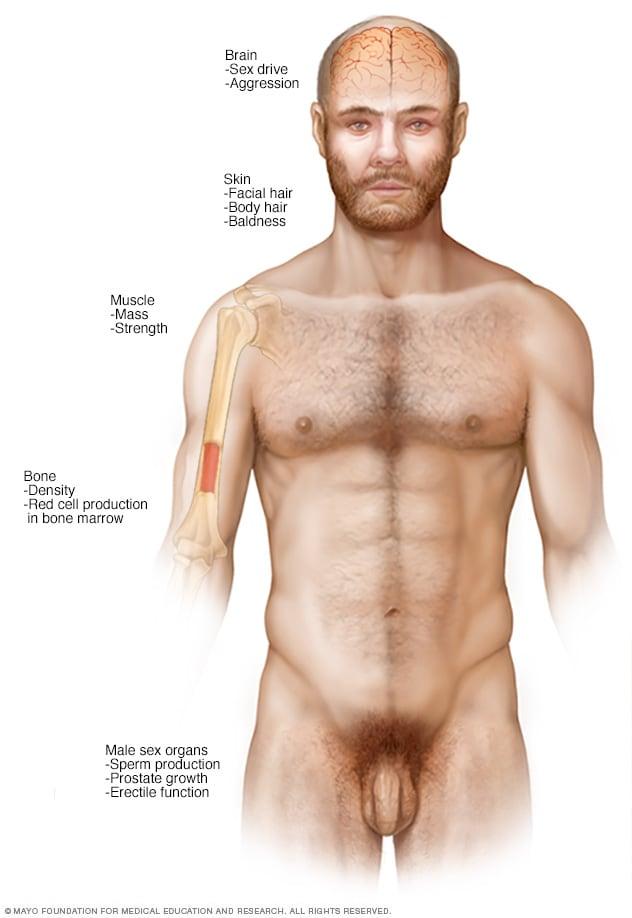
Exploring the Link Between Testosterone and Cognitive Performance
The relationship between testosterone levels and cognitive performance has garnered significant interest in recent years. Research indicates that testosterone may play a crucial role in various cognitive functions, including memory, attention, and spatial abilities. Observational studies have shown that individuals with higher testosterone levels frequently exhibit enhanced cognitive capabilities compared to those with lower levels. This link raises essential questions regarding whether testosterone therapy could serve as a potential intervention for cognitive decline, particularly in aging populations.
To better understand this connection, it is important to consider several factors that influence cognitive performance:
- Age: Testosterone levels naturally decline with age, potentially impacting cognitive function.
- Health Conditions: Chronic illnesses, such as diabetes and obesity, can adversely affect testosterone levels and cognition.
- Lifestyle Choices: Diet, exercise, and mental stimulation can enhance both testosterone levels and cognitive performance.
Various studies have provided insights into how testosterone therapy might improve cognitive outcomes. Consider the following effects observed in recent research:
| Study Focus | Observations |
|---|---|
| Memory Enhancement | Participants showed improved long-term memory recall. |
| Attention Span | Increased focus during complex tasks was noted. |
| Spatial Skills | Men receiving testosterone therapy performed better in spatial navigation tasks. |
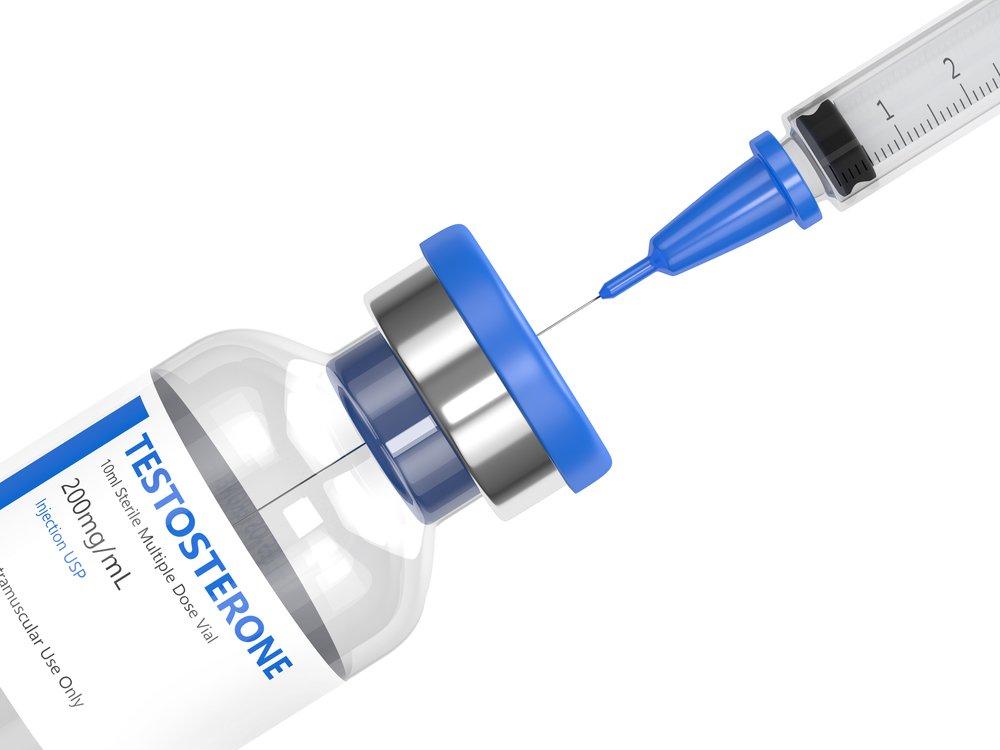
The Science Behind Testosterone Therapy and Brain Health
The intricate relationship between testosterone and cognitive function has garnered increasing attention from the scientific community. Research indicates that testosterone plays a pivotal role in various brain processes, including neurogenesis, synaptic plasticity, and mood regulation. Studies suggest that maintaining optimal testosterone levels can enhance memory, improve focus, and even reduce the risk of neurodegenerative diseases. Some key areas where testosterone exerts its influence include:
- Neuroprotection: Testosterone may protect neurons from oxidative stress and inflammation.
- Cognitive Enhancement: It has been linked to improved memory and learning capabilities.
- Emotional Stability: Balanced testosterone levels can positively impact mood and reduce anxiety.
Despite these promising findings, the effects of testosterone therapy on brain health are complex. Not all individuals may respond identically, and potential side effects can arise from testosterone supplementation. For instance, a recent study reveals that while testosterone therapy improved cognitive function in some older men, others experienced negative impacts on mood and increased aggression. The following table highlights essential considerations when evaluating testosterone therapy in the context of cognitive health:
| Consideration | Impact |
|---|---|
| Age Factors | Variability in therapy response |
| Dosage | Potential side effects versus benefits |
| Health Status | Underlying conditions may influence outcomes |
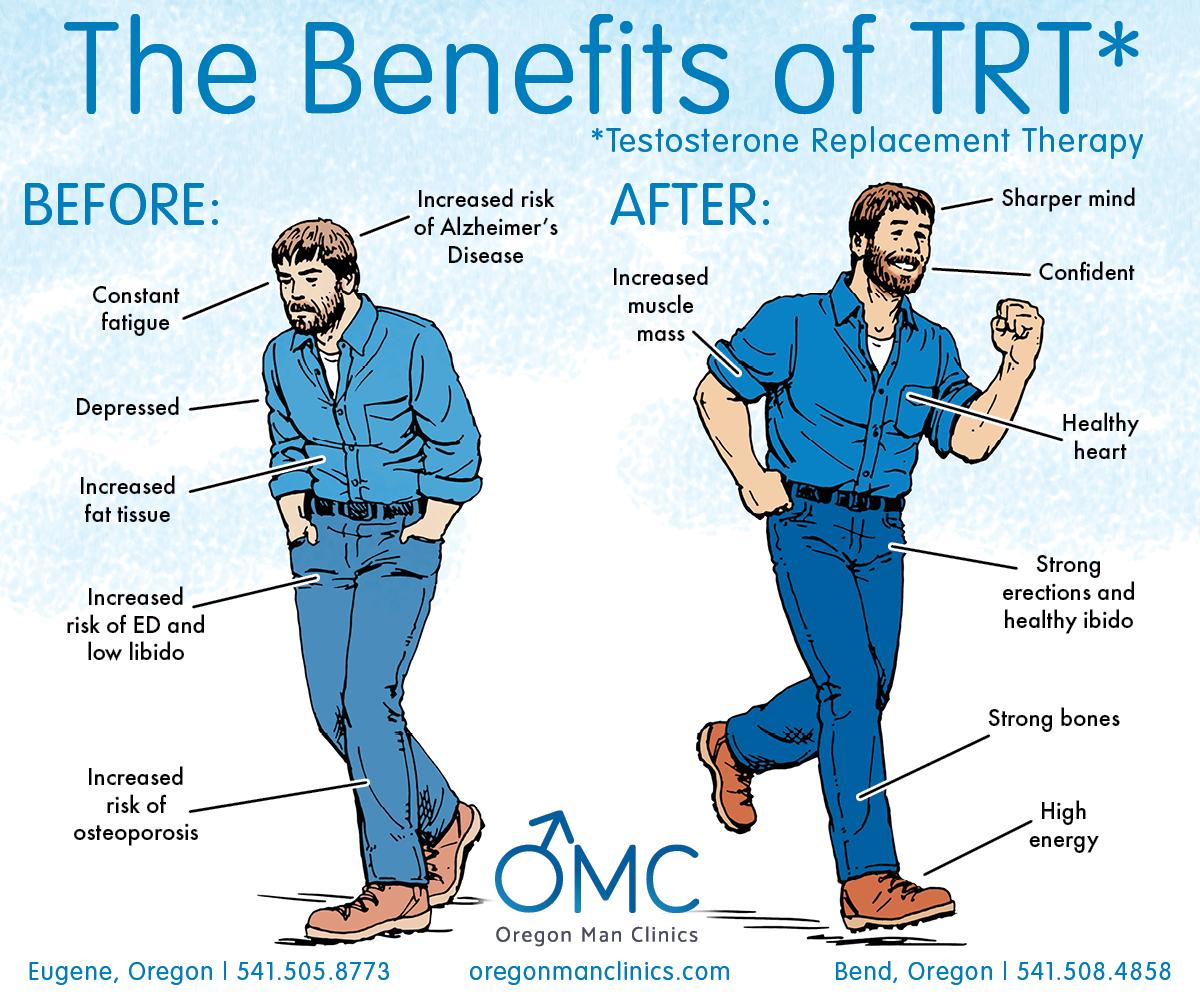
Identifying Symptoms of Low Testosterone in Cognitive Decline
Low testosterone levels can significantly impact cognitive functions, manifesting in various symptoms that may be subtle yet impactful. Individuals experiencing these hormonal fluctuations may notice memory lapses, an increase in confusion, or even trouble concentrating. Other cognitive signs can include decreased mental clarity, difficulty with problem-solving, and a general feeling of being mentally foggy. Recognizing these changes early can be pivotal in addressing potential hormonal imbalances.
Beyond memory-related issues, behavioral changes often accompany low testosterone levels, which may further contribute to cognitive decline. Symptoms such as irritability, mood swings, and a reduced sense of motivation can disrupt daily life and compound mental challenges. Engaging in a proactive evaluation of overall health, including hormonal assessments, can provide insights. Here’s a quick overview of symptoms to look out for in relation to cognitive decline:
| Symptom | Possible Impact |
|---|---|
| Memory Lapses | Difficulty retaining new information |
| Mood Swings | Inconsistent emotional response affecting relationships |
| Concentration Issues | Struggling to focus on tasks or conversations |
| Mental Fatigue | Feeling drained from intellectual activities |
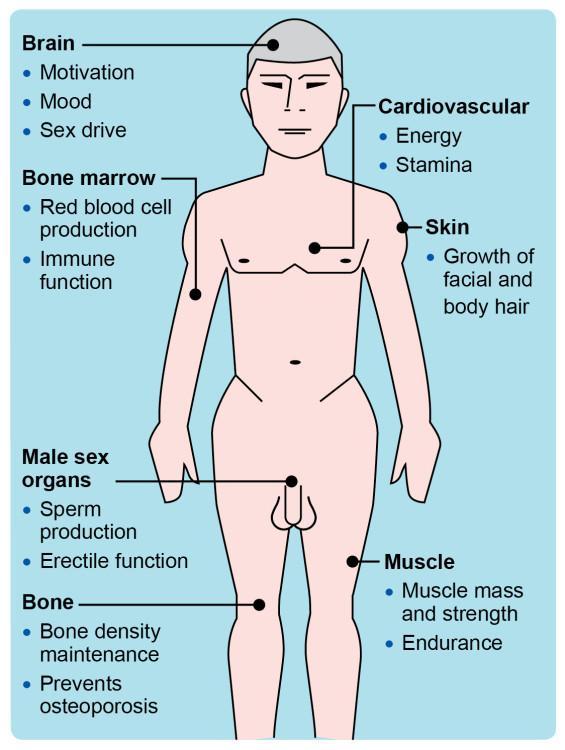
Evaluating the Benefits of Testosterone Therapy for Mental Clarity
Testosterone therapy has gained attention for its potential to enhance cognitive functions, including mental clarity and overall brain health. Research suggests that optimal testosterone levels may positively influence neurotransmitter activity, thereby improving focus, memory, and processing speed. As individuals age, testosterone levels naturally decline, which can coincide with cognitive challenges. This has led many to consider therapy as a means to potentially regain lost mental sharpness. The following benefits have been noted:
- Improved Concentration: Testosterone may assist in maintaining attention span and focus on tasks.
- Enhanced Memory: Some studies indicate a correlation between testosterone levels and memory retention capabilities.
- Increased Mental Resilience: Therapy might contribute to better stress coping mechanisms and emotional stability.
Clinical evaluations have revealed measurable improvements in patients undergoing testosterone therapy, with cognitive assessments often showing significant enhancements. These benefits, however, should be weighed against potential risks associated with hormone therapy. Some practitioners recommend monitoring levels closely and considering individual health factors before initiating treatment. Below is a brief overview of factors related to testosterone therapy:
| Factor | Considerations |
|---|---|
| Age | Declining levels typically noted after age 30 |
| Health Status | Existing conditions must be evaluated prior |
| Treatment Duration | Long-term effects need continuous assessment |
Potential Risks and Considerations in Hormonal Treatments
The decision to pursue testosterone therapy for cognitive function is not without its challenges. Potential side effects can include a variety of physical and mental health issues that significantly impact the quality of life. These effects can range from mood swings and irritability to more severe conditions such as cardiovascular complications. Individuals should also consider the following factors before starting treatment:
- Health Status: Pre-existing conditions like heart disease or prostate issues can be exacerbated by testosterone therapy.
- Dosage Monitoring: Finding the right dosage is crucial, as an imbalance can lead to detrimental effects.
- Age Considerations: Older individuals may experience different side effects compared to younger patients.
Furthermore, the long-term effects of testosterone therapy on cognitive function remain inadequately studied. Patients may encounter psychological risks, including increased anxiety or depressive symptoms, as hormone levels fluctuate. As such, careful monitoring and a tailored approach to therapy are paramount. To aid in understanding the potential impacts, the following table summarizes common risks and considerations:
| Risk | Description |
|---|---|
| Cardiovascular Issues | Increased risk of heart attack or stroke. |
| Prostate Health | Possible growth of prostate tissue, raising cancer concerns. |
| Mood Changes | Fluctuating emotions, increased irritability or aggression. |
| Dependency | Risk of psychological dependence on hormonal levels. |
Personalizing Your Approach to Testosterone Therapy
When considering testosterone therapy to enhance cognitive function, it’s essential to understand that a one-size-fits-all approach may not be effective. Each individual’s hormonal profile and health status can differ significantly. Therefore, personalized assessments are crucial. Engaging in thorough baseline evaluations, including blood tests and cognitive assessments, helps create a tailored therapy plan. This customized approach can address specific needs and concerns, ensuring that the therapy aligns with personal health objectives.
Additionally, the method of administration plays a critical role in the effectiveness of testosterone therapy. Options include injections, topical gels, and pellets, each offering distinct advantages based on lifestyle and individual preferences. When structuring a personalized plan, consider:
- Dosage: Adjusting levels according to symptoms and lab results.
- Administration method: Choosing what fits best with daily routines.
- Monitoring: Regular follow-ups to assess cognitive progress and adjust therapy as needed.
The ultimate goal is to enhance cognitive function while minimizing potential side effects. This requires a collaborative effort between healthcare providers and patients to regularly refine and optimize therapy based on lived experiences and emerging research findings.
Future Directions: Research on Hormones and Cognitive Function
The exploration of the intricate relationship between hormones and cognition is gaining momentum, particularly in the realm of testosterone therapy. Current studies suggest that androgens, including testosterone, may play a significant role in enhancing cognitive abilities such as memory and executive function. Researchers are encouraged to delve deeper into the underlying mechanisms of how testosterone influences neuroplasticity, neuronal health, and neurogenesis. Understanding these pathways could lead to improved cognitive therapies that harness hormonal modulation for conditions such as age-related cognitive decline and Alzheimer’s disease.
Future investigations should consider a variety of factors that may impact the effectiveness of testosterone therapy on cognitive function. Key areas ripe for exploration include:
- The timing of therapy initiation: Is early intervention more beneficial?
- Dose-response relationships: What are the optimal dosing regimens?
- Longitudinal effects: How do cognitive outcomes evolve over time with sustained therapy?
Moreover, it’s crucial to conduct randomized controlled trials that account for participants’ baseline testosterone levels, overall health, and potential comorbid conditions. The goal is to create a comprehensive framework that can inform clinical practices and optimize therapeutic strategies tailored to individual needs.
Q&A
Q&A: Understanding Testosterone Therapy for Cognitive Function
Q1: What is testosterone therapy, and how is it linked to cognitive function?
A1: Testosterone therapy involves the administration of testosterone to individuals with low hormone levels, typically through injections, patches, or gels. Recent research suggests that testosterone may play a role in cognitive function, particularly in areas like memory, attention, and spatial awareness. This interest stems from observations that lower testosterone levels, often seen in older men, might correlate with cognitive decline.
Q2: Who is a candidate for testosterone therapy?
A2: Candidates for testosterone therapy typically include men with clinically low testosterone levels—a condition called hypogonadism—characterized by symptoms like fatigue, depression, and reduced libido. Some researchers are exploring its use in older adults who may experience cognitive decline, but it is essential for individuals to consult healthcare professionals before undergoing therapy.
Q3: What does the current research say about the effects of testosterone on cognitive abilities?
A3: Research findings on the cognitive benefits of testosterone therapy are mixed. Some studies suggest that testosterone may promote certain cognitive functions, especially memory and processing speed, while others show negligible or no effects. the scientific community remains cautious and emphasizes the need for more extensive, long-term studies to draw definitive conclusions.
Q4: Are there any risks associated with testosterone therapy?
A4: Yes, testosterone therapy can pose several risks, including increased red blood cell count, sleep apnea, acne, and potential cardiovascular complications. Additionally, there is ongoing debate about its effects on prostate health. Therefore, thorough screening and monitoring by a healthcare provider are crucial before starting therapy.
Q5: How might testosterone therapy be integrated into a broader approach to cognitive health?
A5: While testosterone therapy could be one piece of the puzzle, cognitive health is influenced by various factors, including physical activity, diet, mental stimulation, and social engagement. A comprehensive approach that includes lifestyle modifications, cognitive training, and perhaps hormone therapy under expert supervision may yield the best outcomes.
Q6: What questions should individuals ask their healthcare provider regarding testosterone therapy for cognitive function?
A6: Individuals should consider asking the following questions:
- How do I know if I have low testosterone levels?
- What are the potential benefits and risks of testosterone therapy in my case?
- Are there alternative treatments for cognitive decline that I should consider?
- How will you monitor my health during treatment?
- What lifestyle changes can I make to enhance cognitive function aside from therapy?
Q7: What is the future outlook for testosterone therapy in relation to cognitive function?
A7: The future of testosterone therapy for cognitive function holds promise, but it is complex. Continued research is needed to clarify benefits, understand the mechanisms involved, and establish safe guidelines for its use. As our understanding of hormonal influences on cognition evolves, so too may our strategies for enhancing brain health in aging populations.
Future Outlook
the exploration of testosterone therapy as a potential enhancer of cognitive function remains a complex and evolving field. While emerging studies offer promising insights into the intricate relationship between hormone levels and brain health, it is essential to approach this topic with both curiosity and caution. The science is still unfolding, and as we continue to dissect the nuances of hormonal influences on cognition, one thing remains clear: the brain is a multifaceted entity, shaped by an interplay of biology, environment, and experience.
As we look to the future, ongoing research will undoubtedly illuminate the pathways through which testosterone affects cognitive performance—be it through memory, focus, or emotional regulation. For individuals considering this therapy, the importance of personalized medical advice cannot be overstated. Balancing the potential benefits with the risks will require careful navigation and a comprehensive understanding of one’s unique health profile.
Ultimately, the conversation surrounding testosterone therapy is not just about enhancing cognitive abilities; it reflects our broader quest to understand and improve the human experience. Whether it leads us to new therapies or prompts us to delve deeper into the intricate workings of the mind, our exploration will undoubtedly enrich our understanding of what it means to think, feel, and thrive.

